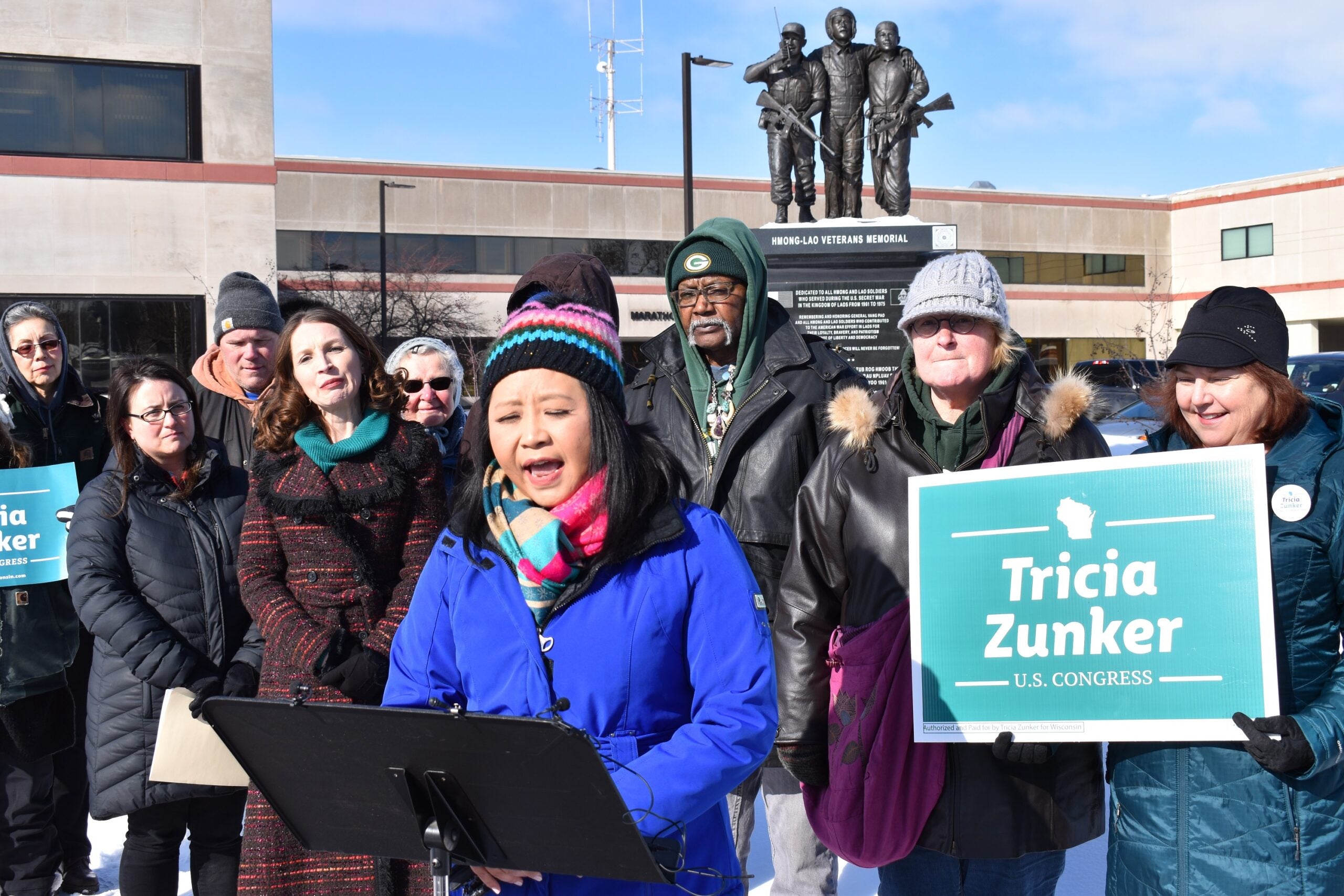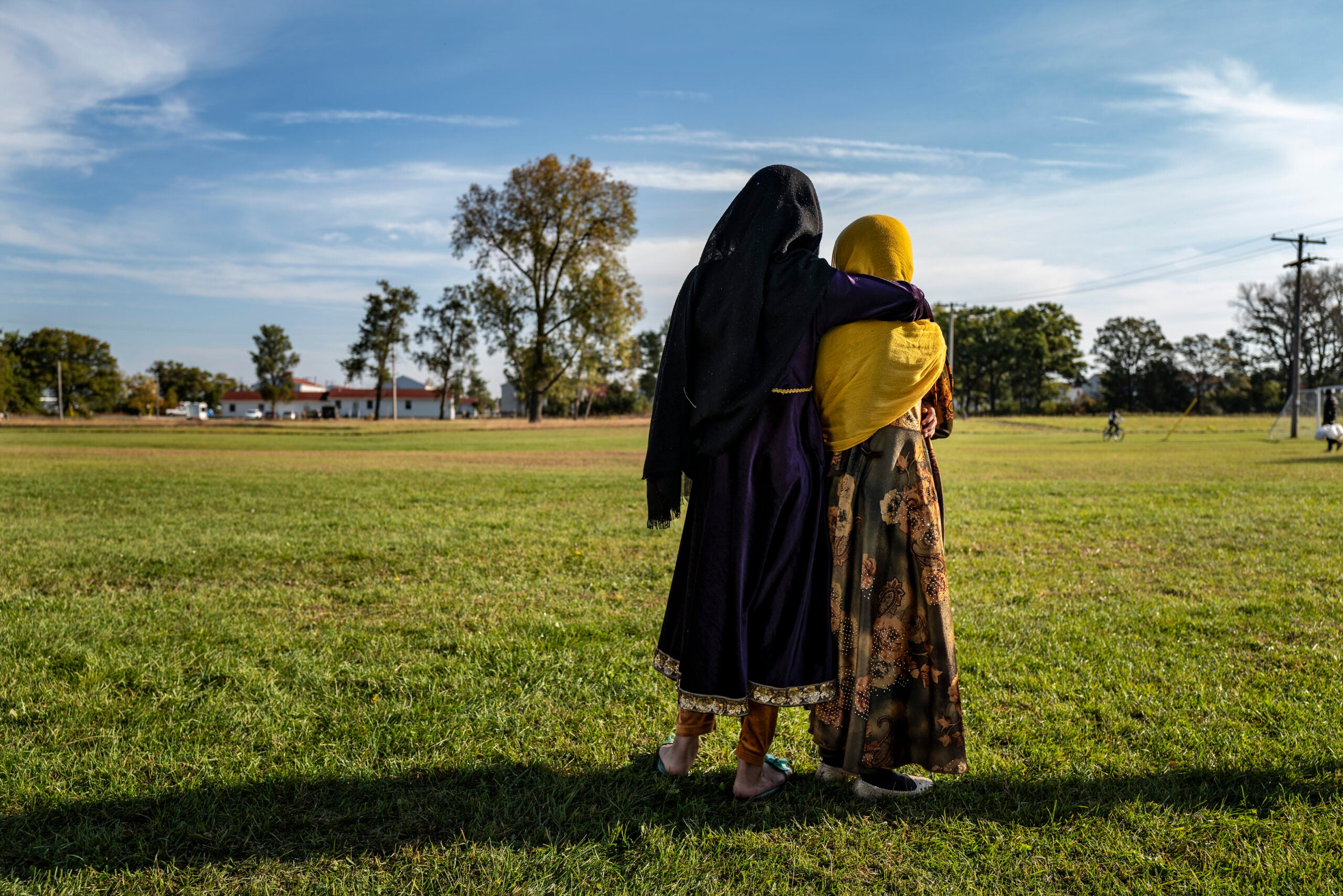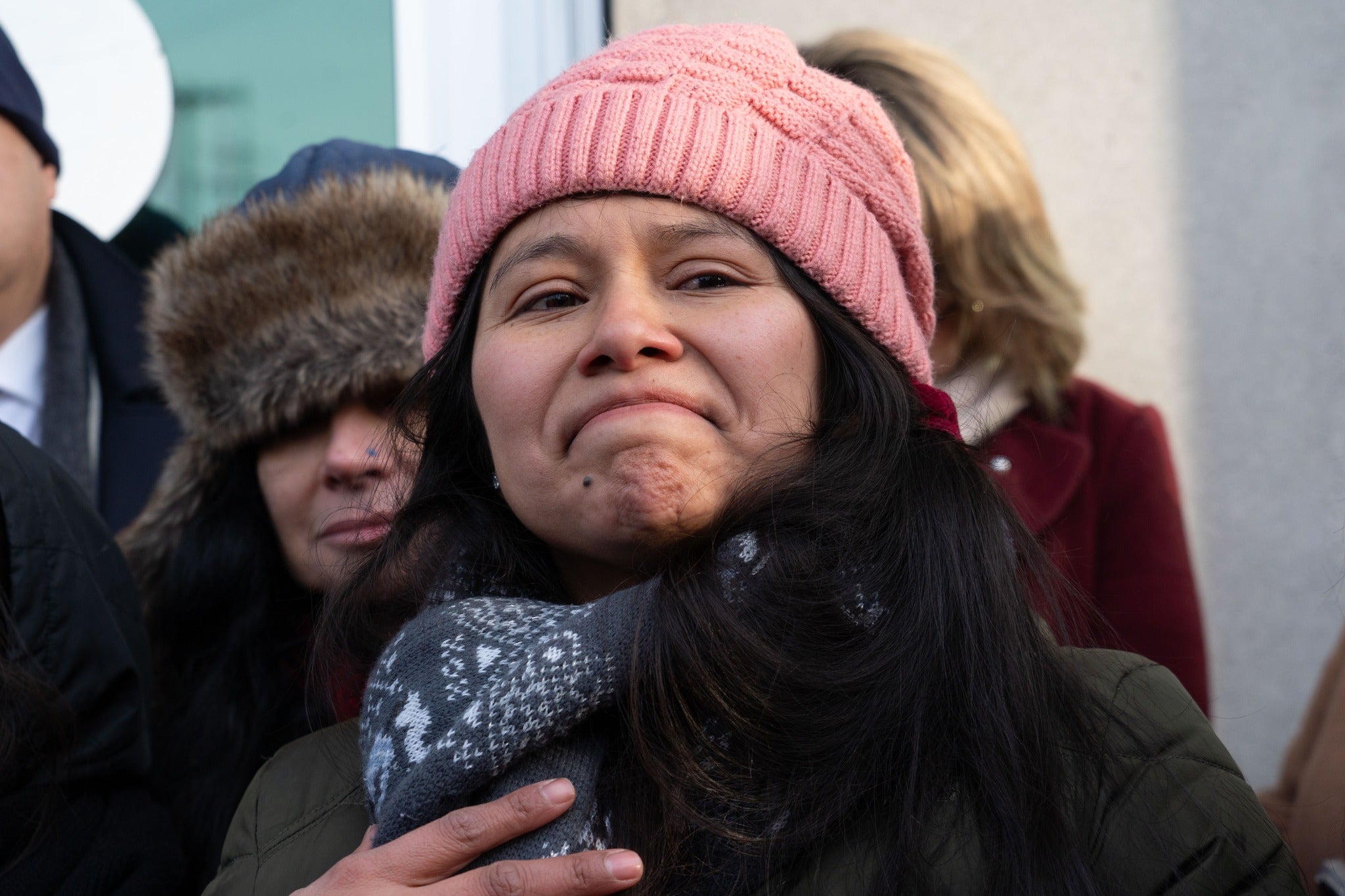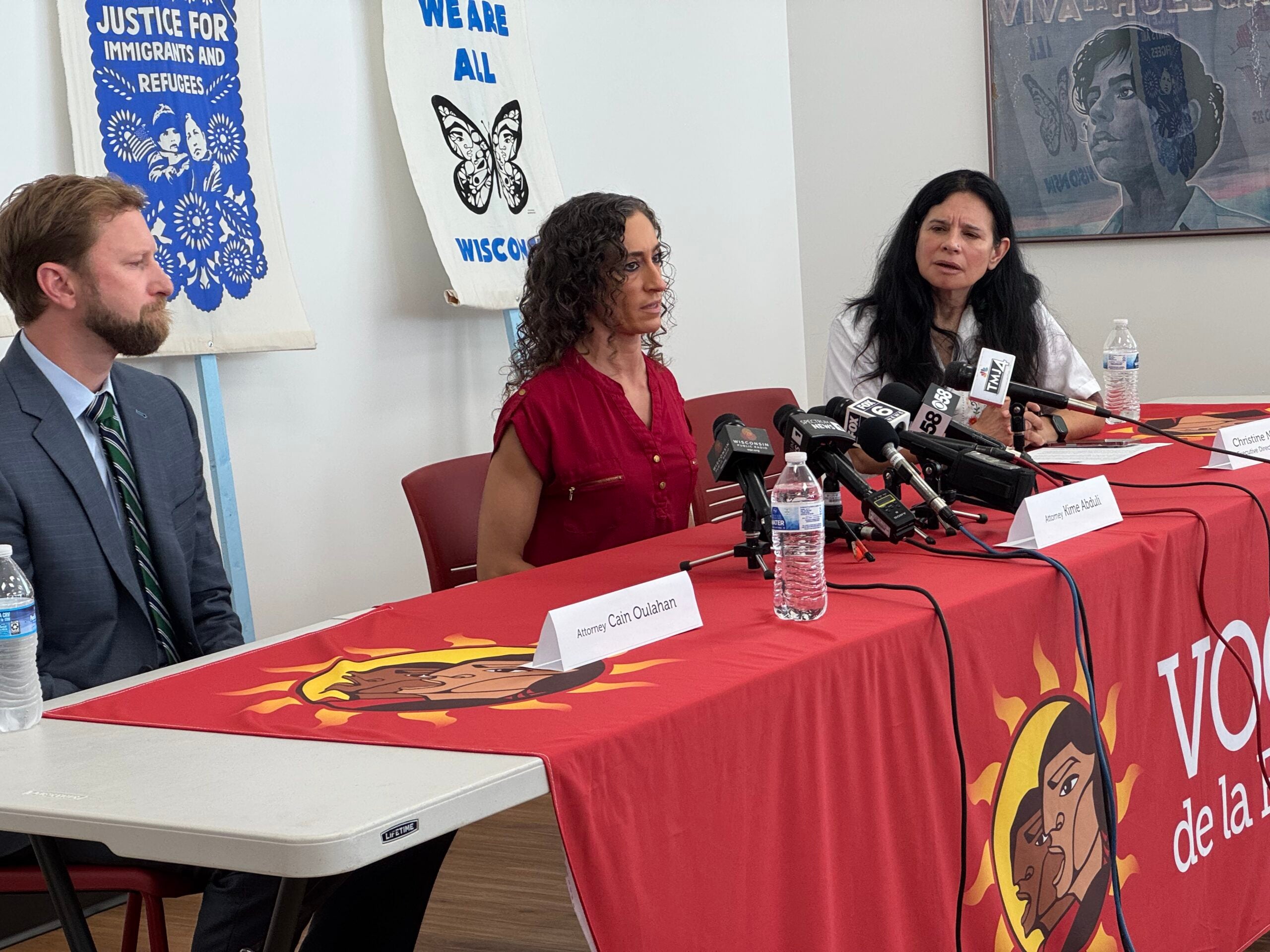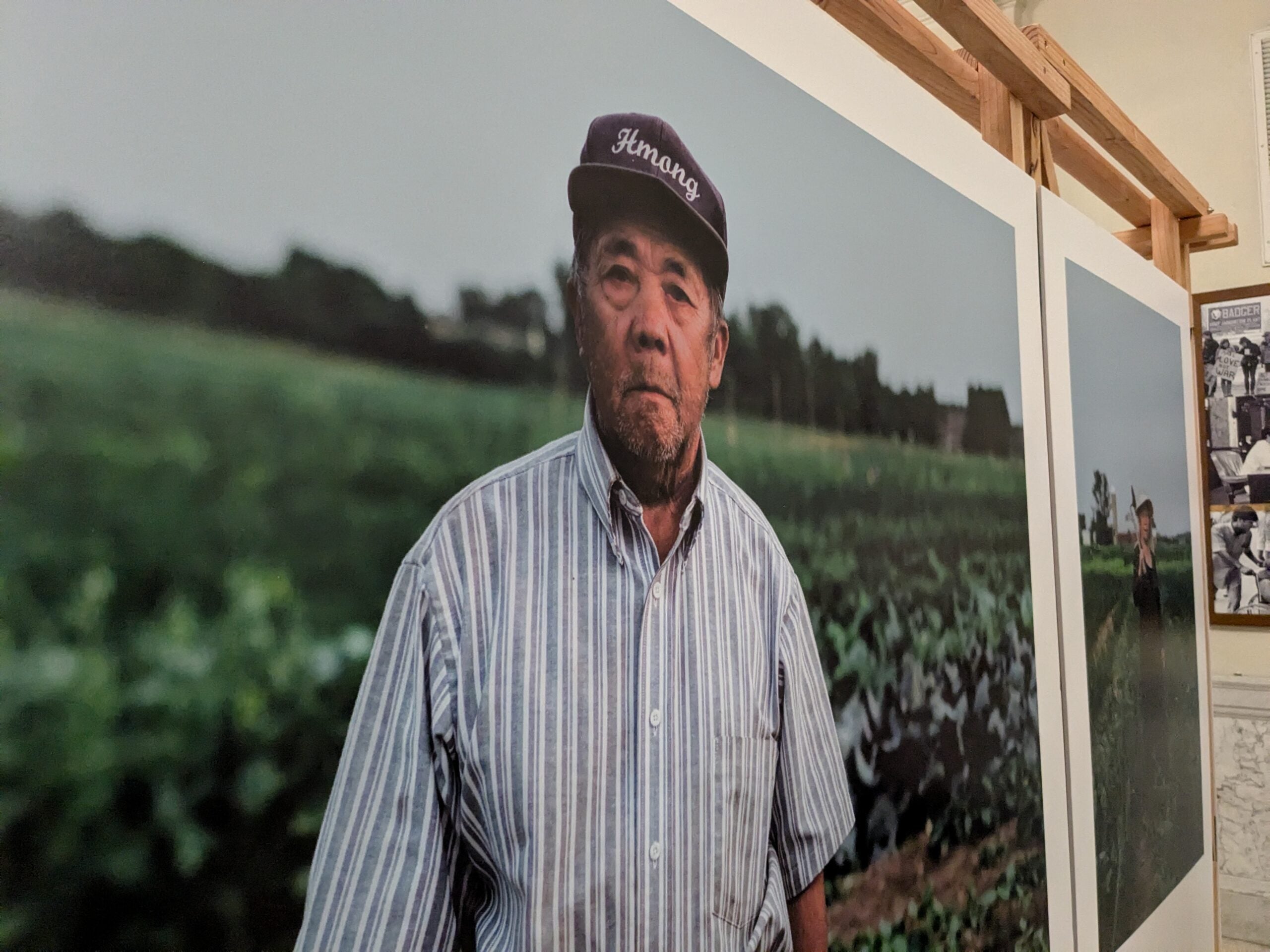Efforts by the Trump administration to increase deportations to Laos have galvanized the Hmong community in the U.S., and leaders are scrambling to share information, quell panic and advocate for those at risk.
After the Vietnam War, in which Hmong soldiers fought alongside the U.S., tens of thousands of were forced to flee Laos and a crackdown from its communist government. Beginning in the 1970s, Hmong families came to the U.S. as refugees.
News surfaced in early February that the Trump administration is negotiating with Laos to deport thousands of Hmong who have broken the law here. It’s triggered a response in Hmong communities across Wisconsin and across the nation, as organizers seek to rally opposition to new deportations.
News with a little more humanity
WPR’s “Wisconsin Today” newsletter keeps you connected to the state you love without feeling overwhelmed. No paywall. No agenda. No corporate filter.
At a rally in Wausau on Feb. 13, Ka Lo called on Hmong leaders to unite in their opposition to the policy.
“Policies that rip American communities and families apart have no part in the American lexicon,” Lo told a group assembled in front of the city’s Hmong-Lao Veterans Memorial, a statue erected in 2016 in honor of Hmong service in the Vietnam War. Lo’s father was a Vietnam veteran, and her parents came to the U.S. as refugees in the late 1970s. In 2018, Lo became the first Hmong woman elected to the Marathon County Board.
In an interview after the rally, she said some leaders were hesitant to hold the rally in the Republican-leaning county that voted for Trump. The event was organized by Tricia Zunker, a Democratic candidate for Congress.
“There were Hmong leaders who didn’t want to say anything because they didn’t want to seem partisan,” Lo said. “This isn’t a partisan issue. This is a human rights issue.”
[[{“fid”:”1015001″,”view_mode”:”full_width”,”fields”:{“format”:”full_width”,”alignment”:””,”field_image_caption[und][0][value]”:”%3Cp%3EDancers%20in%20traditional%20Hmong%20clothing%20compete%20at%20the%202018%20Hmong%20Wausau%20Festival.%26nbsp%3B%3Cem%3EPhoto%20courtesy%20of%20the%20Hmong%20Wausau%20Festival.%3C%2Fem%3E%3C%2Fp%3E%0A”,”field_image_caption[und][0][format]”:”full_html”,”field_file_image_alt_text[und][0][value]”:”Dancers at Hmong Wausau Festival”,”field_file_image_title_text[und][0][value]”:”Dancers at Hmong Wausau Festival”},”type”:”media”,”field_deltas”:{“2”:{“format”:”full_width”,”alignment”:””,”field_image_caption[und][0][value]”:”%3Cp%3EDancers%20in%20traditional%20Hmong%20clothing%20compete%20at%20the%202018%20Hmong%20Wausau%20Festival.%26nbsp%3B%3Cem%3EPhoto%20courtesy%20of%20the%20Hmong%20Wausau%20Festival.%3C%2Fem%3E%3C%2Fp%3E%0A”,”field_image_caption[und][0][format]”:”full_html”,”field_file_image_alt_text[und][0][value]”:”Dancers at Hmong Wausau Festival”,”field_file_image_title_text[und][0][value]”:”Dancers at Hmong Wausau Festival”}},”link_text”:false,”attributes”:{“alt”:”Dancers at Hmong Wausau Festival”,”title”:”Dancers at Hmong Wausau Festival”,”class”:”media-element file-full-width”,”data-delta”:”2″}}]]
In the Fox Valley, Maiyoua Thao, an Appleton City Council member, joined Outagamie County Executive Tom Nelson, congressional candidate Amanda Stuck and community members for an event opposing the deportations. The cause has the support of U.S. Sen. Tammy Baldwin, U.S. Reps. Mark Pocan and Gwen Moore, Gov. Tony Evers and Milwaukee Mayor Tom Barrett, among other Democratic politicians.
Republican leaders in Wisconsin have been more circumspect. In a statement, U.S. Sen. Ron Johnson said he “urge(s) the Trump administration to act carefully and judiciously to ensure law-abiding Hmong in the United States legally are treated fairly.”
U.S. Rep. Mike Gallagher hasn’t released a statement, but a spokesman on Feb. 11 said he was seeking more information on the situation.
Most of the 300,000 Hmong people in the U.S. are citizens, either because their status as refugees allowed them to be naturalized or because they are part of generations who were born here.
But some are green card holders — legal permanent residents, but not citizens. An estimated 4,500 of these people have deportation orders against them, usually because they have been convicted of a crime. Those deportation orders can stay in effect for decades, even after these individuals have served their time and been released.
Hmong have generally been protected from deportation in the past because the government of Laos wouldn’t accept most U.S. deportees. According to an Immigration and Customs Enforcement report, there were five deportations to Laos in the last fiscal year.
But a spokeswoman for the U.S. State Department said the Trump administration is calling on Laos to accept more deportees, and that the U.S. is funding a reintegration program there. The administration has secured a similar agreement with Cambodia, and has also increased deportations to Vietnam.
Advocates say Hmong deportees could still face persecution in Laos, and very few of them have any connection to the country.
“Many of these individuals came into the United States as children,” said Chai Moua.
Moua, who lives in Stevens Point, works for Freedom Inc., a nonprofit that is helping those at risk of deportation to get legal protections. She met this month with a group of Hmong women in Madison who fled Laos decades ago. In the group of 20, she said, four had children now at risk of deportation.
“These mothers are saying: These are the children that we had on our backs while we crossed the Mekong River,” Moua said. “These are the children that we had risked our lives for, to bring here to the United States.”
In the last 20 years, the U.S. has initiated deportation proceedings in court against 4,955 citizens of Laos, many of whom were Hmong. (Court data don’t specify the individuals’ ethnic group.) Court records for 3,932 of them included information on how long the individuals had been in the United States. According to immigration data compiled by Syracuse University, more than 80 percent of those had been in the U.S. for more than a decade. Forty-nine percent had been in the U.S. for 20 years or more.
The Trump administration has given little indication about where negotiations with Laos stand. But the news has been enough to trigger panic in some parts of the Hmong community, and a spread of misinformation, such as the false notion that any Hmong resident could become eligible for deportation. Leaders say they’re trying to keep panic and misinformation from spreading, and at the same time taking the threat of new deportations seriously.
In Wisconsin, Stuck and other Democrats in the state Legislature have said they’ll introduce a resolution condemning the Trump administration’s efforts. U.S. Rep. Betty McCollum, D-Minn., said she’ll introduce legislation this week that would stop Hmong deportations.
“Because there’s no information (from official sources), it creates this fear,” said Yee Leng Xiong, director of Wausau’s Hmong American Center. “It’s a fear of the unknown.”
Yang Sao Xiong, a professor of Asian-American Studies at the University of Wisconsin-Madison, says Hmong history as war allies of the U.S. military has long shaped the way the community sees itself. But the story of broader Hmong acceptance in the U.S. has never been simple.
“There are times when they are treated as citizens,” Xiong said. “And there are times when they’re treated as, clearly, outsiders. So this relationship fluctuates depending on this larger political context.”
In the outpouring of response to news of potential deportations, the community is responding to “a long history of feeling betrayed — a long history of being treated as less than human,” Xiong said.
Wisconsin Public Radio, © Copyright 2025, Board of Regents of the University of Wisconsin System and Wisconsin Educational Communications Board.

